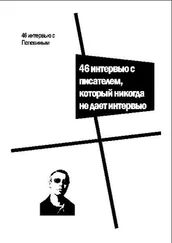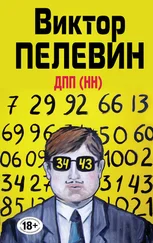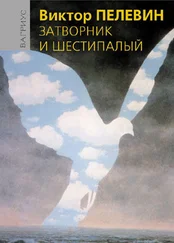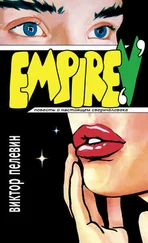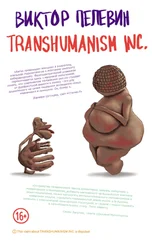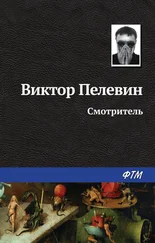Виктор Пелевин - Babylon
Здесь есть возможность читать онлайн «Виктор Пелевин - Babylon» весь текст электронной книги совершенно бесплатно (целиком полную версию без сокращений). В некоторых случаях можно слушать аудио, скачать через торрент в формате fb2 и присутствует краткое содержание. Жанр: Современная проза, на английском языке. Описание произведения, (предисловие) а так же отзывы посетителей доступны на портале библиотеки ЛибКат.
- Название:Babylon
- Автор:
- Жанр:
- Год:неизвестен
- ISBN:нет данных
- Рейтинг книги:5 / 5. Голосов: 1
-
Избранное:Добавить в избранное
- Отзывы:
-
Ваша оценка:
- 100
- 1
- 2
- 3
- 4
- 5
Babylon: краткое содержание, описание и аннотация
Предлагаем к чтению аннотацию, описание, краткое содержание или предисловие (зависит от того, что написал сам автор книги «Babylon»). Если вы не нашли необходимую информацию о книге — напишите в комментариях, мы постараемся отыскать её.
Babylon — читать онлайн бесплатно полную книгу (весь текст) целиком
Ниже представлен текст книги, разбитый по страницам. Система сохранения места последней прочитанной страницы, позволяет с удобством читать онлайн бесплатно книгу «Babylon», без необходимости каждый раз заново искать на чём Вы остановились. Поставьте закладку, и сможете в любой момент перейти на страницу, на которой закончили чтение.
Интервал:
Закладка:
‘Li’d winker drike I watof!’
Gireiev obviously didn’t understand what was going on; but it was clear that whatever it was, he didn’t like it.
‘Li’d dratinker wike of wit!’ Tatarsky repeated meekly and tried to smile.
He really wanted Gireiev to smile back at him; but Gireiev did something strange - he got to his feet and backed away from Tatarsky, who understood for the first time what was meant by the phrase ‘a mask of horror’. His friend’s face was distorted into the most distinct possible mask of precisely that kind. Gireiev took several faltering steps backwards, then turned and ran. Tatarsky was offended to the depths of his soul.
Meanwhile the evening twilight had begun to thicken. As it flitted through the blue haze between the trees, Gireiev’s Nepalese waistcoat looked like a large butterfly. Tatarsky found the idea of pursuit exciting. He launched himself after Gireiev, bounding high in the air in order not to stumble over some root or hummock. It was soon clear that he was running a lot faster that Gireiev, quite incomparably faster, in fact. He overtook him and turned back several times before he realised that he wasn’t running around Gireiev, but around the remnant of a dry tree-trunk the same height as a man. That sobered him up a little, and he set off down the path in what he thought was the direction of the railway station.
Along the way he ate several more fly-agarics that attracted his attention among the trees, and soon he found himself on a wide dirt road with a fence of barbed wire running along one edge of it.
Someone appeared ahead of him, walking along. Tatarsky went up to him and asked politely: ‘Stan gou thecation totet yell he mow? There trun rewains?’
Glancing sharply at Tatarsky, the stranger took a quick step backwards, then took to his heels. Everybody seemed to be reacting to him in the same way today. Tatarsky remembered his Chechen employer and thought cheerfully to himself:
‘What if I met Hussein now, I wonder if he’d be scared?’
When Hussein promptly appeared at the edge of the road, it was Tatarsky who was scared. Hussein was standing there silently in the grass and not reacting in any way to Tatarsky’s approach. But Tatarsky slowed his pace, walked across to Hussein with meek, childish steps and stood there paralysed with guilt.
‘What did you want?’ Hussein asked.
Tatarsky said something extremely inappropriate: ‘I just need a second. I wanted to ask you, as a representative of the target group: what associations does the word "parliament" have for you?’ In his fright he didn’t even notice whether he was speaking normally or not.
Hussein wasn’t surprised at all. He thought for a moment and answered: ‘Al-Ghazavi had this poem called "The Parliament of Birds". It’s about how thirty birds flew off in search of the bird that is called Semurg - the king of all birds and a great master.’
‘But why did they fly off in search of a king, if they had a parliament?’
‘You ask them that. And then, Semurg was not just a king, he was a fount of great knowledge. That’s more than you can say for a parliament.’
‘How did it all end?’ asked Tatarsky.
‘When they had endureded thirty trials, they learned that the word "Semurg" means "thirty birds".’
‘Who from?’
‘The voice of God told them.’
Tatarsky sneezed. Hussein immediately fell silent and turned away his glowering face. Tatarsky waited for a continuation for quite a long time before he realised that Hussein was actually a post with a sign nailed to it saying: ‘Campfires forbidden!’ that he could scarcely make out in the semi-darkness. That upset him - so Gireiev and Hussein were in league now! He’d liked Hussein’s story, but now it was clear that he’d never learn all the details, and in the form he’d heard it, it wasn’t even fit for a cigarette concept. Tatarsky walked on, wondering what it was that had made him stop in such a cowardly fashion by a Hussein-post that hadn’t even asked him to.
The explanation was not a very pleasant one: it was a relict of the Soviet era, the slave mentality he still hadn’t completely squeezed out of himself. Tatarsky thought for a while and came to the conclusion that the slave in the soul of Soviet man was not concentrated in any particular sector, but rather tinged everything that happened in its twilit expanses in a shade of chronic psychological peritonitis, which meant there was no way to squeeze this slave out drop by drop without damaging precious spiritual qualities. This thought seemed important to Tatarsky in the light of his forthcoming collaboration with Pugin, and he rummaged in his pockets for a long time to find a pen to note it down, but couldn’t find one.
Another passer-by appeared, coming towards him; this time it was definitely no hallucination. That much became clear after Tatarsky’s attempt to borrow a pen - the passer-by took to his heels, running with genuine speed and not looking back.
Tatarsky simply couldn’t figure out what it was in his behaviour that had such a terrifying effect on the people he met. Perhaps they were frightened by the strange disorder of his speech, the way the words he tried to pronounce fell apart into syllables that then re-attached themselves to each other in a random order. Even so, there was something rather flattering in such an extreme reaction.
Tatarsky was suddenly struck so forcibly by a certain thought that he stopped dead and slapped his palm against his forehead. ‘Why, of course, it’s the Tower of Babel!’ he thought. ‘They probably drank that mushroom tea and the words began to break apart in their mouths, just like mine. Later they began to call it a confusion of tongues. It would be better to call it a confusion of language…’
Tatarsky could sense that his thoughts were filled with such power that each one was a stratum of reality, just as important in every respect as the forest he was walking through this evening. The difference was that the forest was a thought he couldn’t stop thinking, no matter how much he wanted to. On the other hand, there was almost no will whatsoever involved in what was going on in his mind. As soon as he had the thought about the confusion of tongues, it became clear to him that the memory of Babylon was the only possible Babylon: by thinking about it, he had summoned it to life; and the thoughts in his head were like trucks loaded with building materials, rushing towards Babylon, making it more and more substantial.
‘They called the confusion of tongues the Tower of Babel.’ he thought. ‘But just what is the Tower of Babel?’
He swayed on his feet, feeling the earth swing round smoothly beneath him. He only stayed upright because the axis of the earth’s rotation ran precisely through the top of his head.
The confusion of tongues coincides in time with the creation of the tower. When there is a confusion of tongues, then the Tower of Babel starts to rise. Or maybe it doesn’t rise; maybe it’s just that the entrance to the ziggurat opens up. Yes, of course. There’s the entrance right there.
A pair of large gates decorated with three-dimensional red stars had appeared in the barbed-wire fence along which Tatarsky was walking. Above them blazed a powerful lamp surmounted by a cowl, and the bright-blue light illuminated the numerous graffiti covering the green sheet-metal of the gates. Tatarsky stopped.
For a minute or two he studied the traditional mid-Russian attempts to write the names of the surrounding villages in Latin script, various names surmounted by crude crowns, symbolic representations of a penis and a vulva, the English verbs ‘to fuck’ and ‘to suck’ in the third person singular of the present tense, but all peppered with incomprehensible apostrophes and abundant logos from the music business. Then his gaze fell on something strange.
Читать дальшеИнтервал:
Закладка:
Похожие книги на «Babylon»
Представляем Вашему вниманию похожие книги на «Babylon» списком для выбора. Мы отобрали схожую по названию и смыслу литературу в надежде предоставить читателям больше вариантов отыскать новые, интересные, ещё непрочитанные произведения.
Обсуждение, отзывы о книге «Babylon» и просто собственные мнения читателей. Оставьте ваши комментарии, напишите, что Вы думаете о произведении, его смысле или главных героях. Укажите что конкретно понравилось, а что нет, и почему Вы так считаете.

